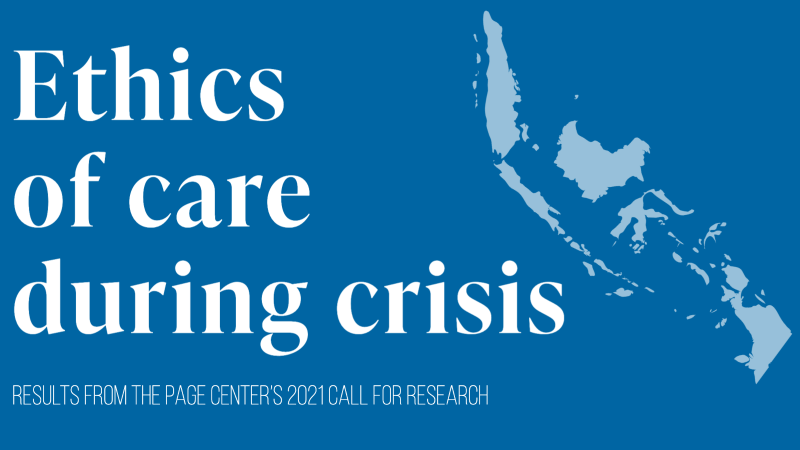Promoting ethics of care to maintain harmony: Lessons from disaster management in Bali, Indonesia
April 18, 2023

By Gregoria A. Yudarwati, Meganusa P. Ludvianto and Ina N. Ratriyana, Universitas Atma Jaya Yogyakarta, Indonesia
This study emerged from a curiosity in discovering how ethics of care can be integrated within an organization’s crisis responses, especially in its communication. With the support of the Page Center, we conducted fieldwork in Bali, Indonesia to examine the relationship between organizations, disaster-prone community members and the presence of culture that is ubiquitous in every aspect of their lives.
Specifically, we were intrigued to understand how the relationship affects harmony among parties, which essentially satisfies the principle of ethics of care: to attend the public’s emotional needs, and consequently nurture relationships between the organization and its publics.
We conducted eight focus group discussions involving government officials, disaster management agencies and their volunteers, strategic staffs of a multinational company, youths, women and the community members of disaster-prone villages. These discussions were supported by multiple in-depth interviews.
First, we discovered that affected community members in Bali perceived risks and crisis differently. Instead of considering crisis as a negative occurrence that needs to be avoided, the Balinese community embraced crisis as a part of the life cycle in maintaining the balance between life and nature. Crisis is treated as a pathway to become a better person, and this is a value that organizations in Bali accommodated, too.
Secondly, as Balinese live their lives according to the Tri Hita Karana (Three Causes of Welfare) philosophy, their perception of crisis is developed from maintaining harmony with three parties:
► The higher spiritual entity (God)
► Nature
► Among humans
Activities that harm the nature for economic benefits, for instance, disrupt the harmony, and thus need to be avoided.
Finally, we found that extending care is already a fundamental part of their lives because Balinese believe in harmony among community members. Caring is a manifestation of such belief. This philosophy should be observed by anyone present in Bali. Therefore, it should affect an organization’s approach when attending to surrounding communities.
Upon research completion, we propose five implications toward discourses of crisis communication.
First, there are two novel dimensions that may help organizations understand risks and crisis, namely ‘language of science’ and ‘language of lifeworld’. These two dimensions are characterized by the origin of knowledge in interpreting crisis. Formal scientific procedure in crisis responses should be harmonized with culturally embedded conventions, which may be derived from the affected parties.
We also contend that risks and crisis should be understood contextually; not only from the calculated perceived probability of hazards, but also defined by the people who endured the situation. Thus, actors in a crisis should be identified by "the people who experienced the crisis" and not solely by the organization. Their relationship with the said organization within a crisis are shaped by the cultural landscape.
Finally, we propose to rethink that crisis communication is not only designed to maintain one’s reputation, but to establish harmony among all parties affected by the crisis. Crisis should no longer be viewed as a mere "destructive event" endured by an organization, but instead as a part of a life cycle which serves as a momentum to achieve betterment.
This research was funded by a 2021 Page/Johnson Legacy Scholar Grant from a call for proposals on ethics of care.

